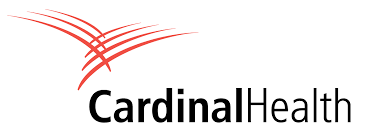- Bone Health
- Immunology
- Hematology
- Respiratory
- Dermatology
- Diabetes
- Gastroenterology
- Neurology
- Oncology
- Ophthalmology
- Rare Disease
- Rheumatology
Biosimilars Roundup: Policy and Business Developments Signify a Busy August
Policy developments, business milestones, and physician-led efforts to shape biosimilar absorption made August 2021 an active time for these lower-cost biologics.
Policy developments, business milestones, and physician-led efforts to shape biosimilar absorption made August 2021 an active time for these lower-cost biologics. The following is a roundup of these events.
One of the leading stories was an attempt by the American Academy of Ophthalmology (AAO) to counter payer policies that favor bevacizumab biosimilars for ophthalmic uses. Avastin is the originator bevacizumab brand and has been used off-label for years for intravitreal injections to address eye disease, such as macular degeneration.
There’s a large amount of clinical evidence in support of Avastin use in these settings and very little if any for the bevacizumab biosimilars Zirabev and Mvasi. The Center for Biosimilars® discussed the AAO’s reasons for opposing use of these biosimilars in an article. This was followed by an interview with George Williams, MD, clinical spokesperson and past president of the AAO.
Following the AAO’s protest of these payer policies, UnitedHealthcare announced that it would no longer prefer bevacizumab biosimilars for eye conditions.
CVS Caremark made a number of formulary changes to give preferred status to biosimilars and remove some biosimilars from the preferred list. The moves reflect the changeable nature of pricing arrangements in the pharmaceutical industry.
After the International Psoriasis Council surveyed its membership, it put together guidance on biosimilar use. The guidance was conservative about biosimilar switching and substitution at the pharmacy counter and called for physician and patient involvement in decisions about whether biosimilars are used.
Guidance from physician groups is important to help build trust and understanding in the use of biosimilars, said 2 Cardinal Health researchers who put together a report on the value of biosimilar education. Misconceptions are slowing the uptake of these products and can be overcome in many ways, they explained, listing recommendations.
HHS is reportedly considering an adjustment in biosimilar coding that would change individual biosimilar reimbursement to reimbursement based on average prices for a group of biosimilars and their reference products. The move has not been announced officially but reports of the policy change have been circulating in Washington, DC. The Community Oncology Alliance has expressed concerns that such a change would cause prices to drop sharply and force biosimilar companies out of the marketplace.
With President Biden asking HHS and CMS to formulate policies to combat high drug prices and drug price inflation, a group of patient advocates asked HHS to consider a zero co-pay policy for Medicare Part B patients, which they estimated would save seniors as much as $3 billion in out-of-pocket costs.
Biden asked HHS to come up with a policy draft on drug price reforms by August 23, 2021, but if it was produced, it wasn’t made public.
Amgen is a big player in the biosimilar market and highlights its revenue progress with these agents in every earnings statement. The Center for Biosimilars® interviewed Chad Pettit, MBA, executive director of Marketing and the Global Biosimilars commercial lead for Amgen, about marketplace trends. Some biosimilars are seeing significant uptake and Pettit expressed confidence that the future will bring more biosimilar approvals and savings.
A report from Artemetrx described a slight easing off in the upward march of specialty drug costs in 2020. The finding was based on an assessment of health plan spending. The slowdown most likely had to do with delayed or deferred diagnostic care during the COVID-19 pandemic, increased biosimilar use, and the availability of more generic products, Artemetrx said.
The COVID-19 vaccine game isn’t just for large players, according to Sarfaraz K. Niazi, PhD, a biosimilars development consultant, professor, and entrepreneur. In a column for The Center for Biosimilars®, Niazi explained that the availability of development information freely provided by COVID-19 vaccine developers, coupled with speedy regulatory approval avenues, makes it possible for smaller companies to step in and clean up.
During the month of August, biosimilar companies partnered with one another in the effort to bring more of these products to market or released information about important milestones in biosimilar development and commercialization.
Among them, Formycon and Bioeq provided information about their ranibizumab biosimilar candidate, and Bio-Thera and Hikma set their sights on commercializing an ustekinumab biosimilar. Samsung Bioepis scored an important European Medicines Agency approval to begin marketing the first ranibizumab biosimilar (Byooviz, SB11).
These and other important biosimilars stories reflect the dynamic nature of the biosimilars market during August 2021, and with people returning from summer vacations and getting back to work, the news is likely to move at an even faster pace in September.
Newsletter
Where clinical, regulatory, and economic perspectives converge—sign up for Center for Biosimilars® emails to get expert insights on emerging treatment paradigms, biosimilar policy, and real-world outcomes that shape patient care.



